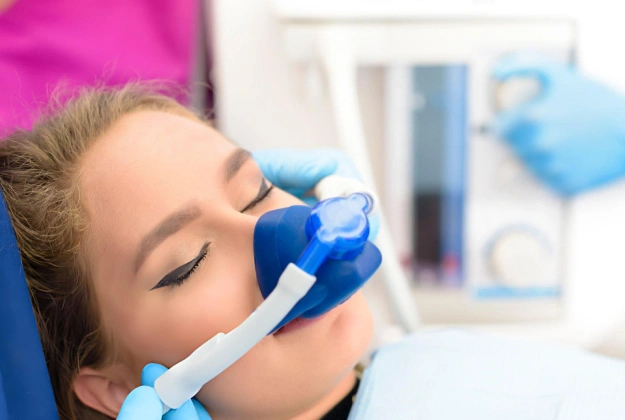
What is Sedation Dentistry?
What Are the Different Types of Sedation?
- Nitrous Oxide: Known as "laughing gas," nitrous oxide is technically not a true sedative. It helps some patients relax enough to fall asleep, but it doesn't induce sleep on its own. It is classified as an anxiolytic medication, which means it reduces anxiety. Many patients find that the appointment seems to pass more quickly while using nitrous oxide, as it reduces awareness of sights, sounds, and sensations during the procedure. The great advantage of nitrous oxide is that it is quickly eliminated from the body once you breathe oxygen for about five minutes, so there are no lingering effects and no need for someone else to drive you home.
- Oral Sedation: involves taking a sedative pill prior to the appointment, which usually causes deep sleep during the procedure. Even if patients remain somewhat aware, they typically have little to no memory of the experience afterward. Oral sedation requires additional training and certification for the dentist due to its higher risk of complications compared to nitrous oxide. Because oral sedation has lingering effects, patients are required to have a responsible adult accompany them and drive them to and from the appointment.
Who Should Consider Sedation Dentistry?
Sedation dentistry is a great option for anyone whose fear or anxiety about dental procedures prevents them from receiving necessary oral care. It is also ideal for patients needing extensive dental work who prefer to complete it in a single, longer appointment. Additionally, individuals with physical or mental challenges that make it difficult to remain calm in the dental chair may find sedation helpful.
However, it’s important to note that not everyone is a suitable candidate for sedation dentistry. Medical conditions, current medications, and other factors must be considered to determine if sedation is safe and appropriate for a patient.
Precautions Regarding Sedation Dentistry
Since sedation involves prescription medications that affect your body, particularly your breathing, it is crucial to share your full medical history with your dentist. Certain medications you are taking may interact with the sedative, or you may have a lung condition that could prevent nitrous oxide from working effectively. If you have developed a tolerance to opioid narcotics or medications like Valium, the sedation may have a different effect on you.
To ensure your safety and comfort during sedation, it is essential to fully disclose all medical conditions, as well as any prescription, over-the-counter, or recreational substances you use.
